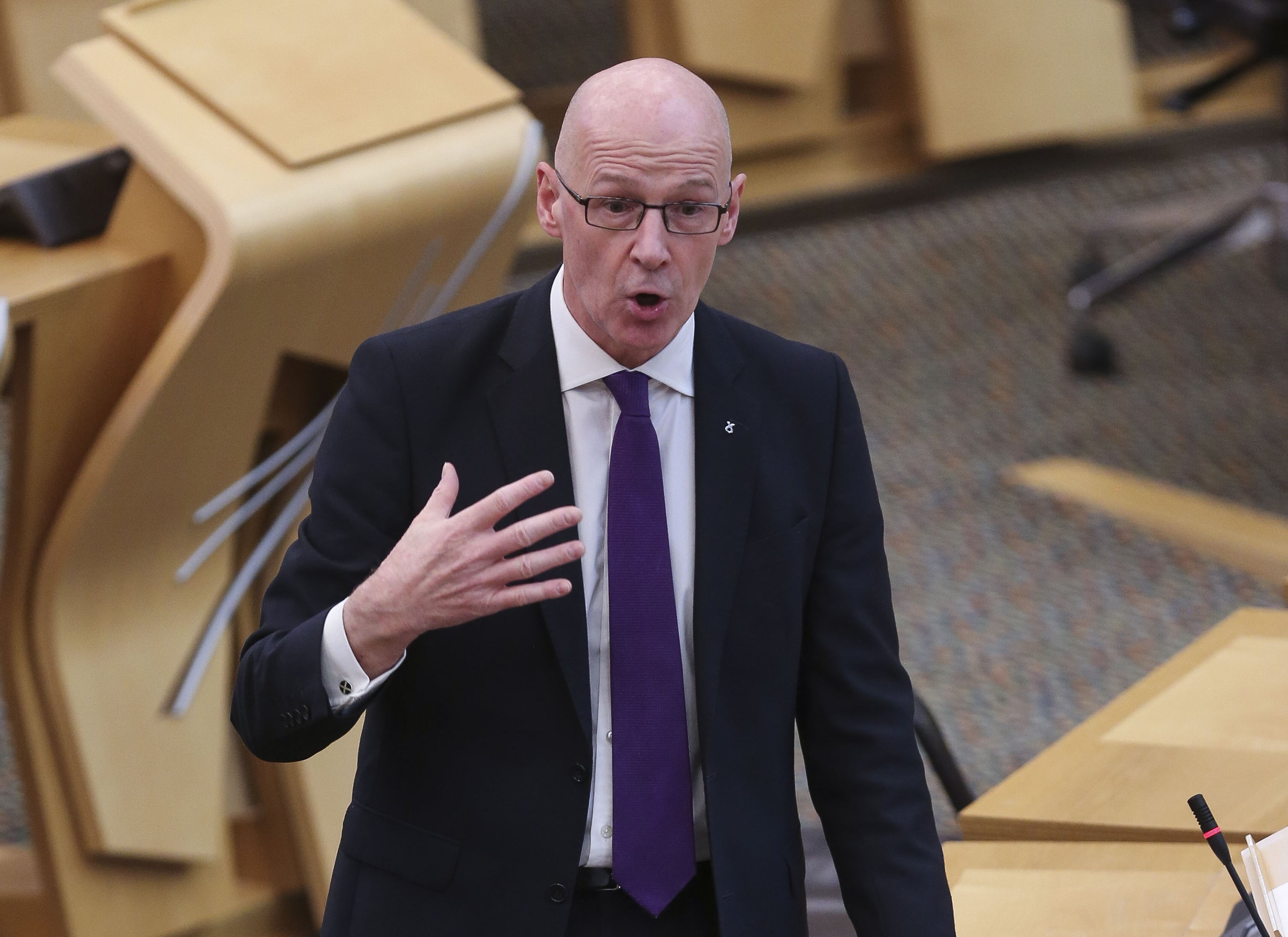John Swinney defends Government’s use of emergency rule-making powers
The Deputy First Minister described a Tory MSP’s criticism of the powers as ‘ludicrous’.

Your support helps us to tell the story
From reproductive rights to climate change to Big Tech, The Independent is on the ground when the story is developing. Whether it's investigating the financials of Elon Musk's pro-Trump PAC or producing our latest documentary, 'The A Word', which shines a light on the American women fighting for reproductive rights, we know how important it is to parse out the facts from the messaging.
At such a critical moment in US history, we need reporters on the ground. Your donation allows us to keep sending journalists to speak to both sides of the story.
The Independent is trusted by Americans across the entire political spectrum. And unlike many other quality news outlets, we choose not to lock Americans out of our reporting and analysis with paywalls. We believe quality journalism should be available to everyone, paid for by those who can afford it.
Your support makes all the difference.John Swinney has defended the Scottish Government’s use of emergency rule-making powers, describing a Conservative MSP’s criticism of them as “ludicrous”.
The Deputy First Minister said the increased use of the “made affirmative procedure” – which allows legal changes to be made before MSPs have a chance to see them – was necessary due to the nature of the threat posed by coronavirus.
The rule-making power has been used more than 100 times since the start of the pandemic, whereas previously it was used only a handful of times in a year.
The Scottish Parliament must approve the changes within 28 days for the new rules to stay in force.
Holyrood’s Delegated Powers Committee is holding an inquiry into the Government’s use of the powers.
Speaking to the committee on Tuesday, Mr Swinney said ministers did not use the procedure lightly.
He said: “The made affirmative procedure has provided the Government with necessary flexibility to deal with crisis situations when immediate action has been necessary.
“For example, when enforcing or removing public health restrictions, both domestically and in terms of international travel restrictions.”
He said he did not expect the procedure to become a more regular feature of Government legislation, saying it only applied in specific circumstances such as the response to the pandemic.
Scottish Conservative MSP Graham Simpson said he disagreed with the Deputy First Minister, saying use of the made affirmative procedure was becoming “normal”.
He said 11.6% of the rules created through the made affirmative procedure later had mistakes identified within them.
That is an affront to democracy
Putting his criticism in “layman’s terms”, Mr Simpson said: “You’ve been ramming through laws at breakneck speed with little to no oversight.
“And in my view, that is an affront to democracy.”
Mr Swinney responded: “I completely, utterly and unreservedly reject the ludicrous narrative that Graham Simpson has just put on record.”
He said previous uses of the made affirmative procedure prior to the onset of coronavirus were often about other public health measures.